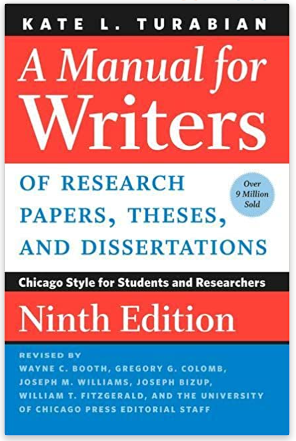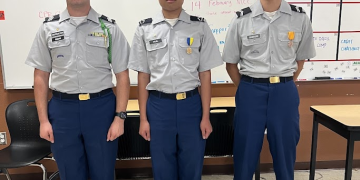
Writing academic papers and peer-reviewed journal articles is a common task for research students. But this task is certainly not easy and comes with a set of hurdles. To thrive in academia, you must have a strong academic writing style and adhere to the maxim “publish or perish.”
In this article, MyAssignmentHelp.com services will unveil the books providing dissertation help that can make your doctoral journey much easier. This thoughtfully chosen list of books covers a variety of subjects, such as –
- Writing the first dissertation
- Carrying out thorough assessments of the literature
- Establishing encouraging peer groups
- Using technology to study further
- Writing and revising your dissertation
- Overcoming barriers when writing
- Formatting and styling your dissertation appropriately
Make them your study allies, and you’ll discover that getting the desired PhD is much easier and more manageable.
The Best Books for Scholars Writing Their First Dissertation
The following are our best recommendations for dissertation writing books:
Kate L. Turabian et al., A Manual for Writers of Research Papers, Theses, and Dissertations
Source: A Manual For Writers

Turabian’s handbook thoroughly examines the research and writing process, which approaches each stage methodically. The book covers many aspects of editorial style, such as quotations and graphic content, and navigates Chicago’s two
source citation styles with skill. The handbook also provides helpful strategies for overcoming the dread of starting large writing assignments. It is a useful tool for anyone working on academic writing.
Umberto Eco, “How to Write a Thesis,”
Source: How to Write a Thesis
 Eco offers a stimulating method for writing a thesis. The book, split into six key sections, examines every aspect of thesis writing. It explores identifying and comprehending the aim of a thesis, picking an interesting topic, carrying out in-depth research, creating a work schedule, writing the thesis itself, and then editing the finished product. Eco writes clearly and helpfully, making this book an invaluable resource for any student.
Eco offers a stimulating method for writing a thesis. The book, split into six key sections, examines every aspect of thesis writing. It explores identifying and comprehending the aim of a thesis, picking an interesting topic, carrying out in-depth research, creating a work schedule, writing the thesis itself, and then editing the finished product. Eco writes clearly and helpfully, making this book an invaluable resource for any student.
Joan Bolker’s “Writing Your Dissertation in Fifteen Minutes a Day”
Source: Writing Your Dissertation in Fifteen Minutes a Day

Joan Bolker’s perceptive book provides a much-needed support network for dissertation writers. Bolker, a co-founder of the Harvard Writing Center, offers graduate students insightful advice and motivation to help them stay focused and productive. She teaches techniques for overcoming fear and enhancing writing style while highlighting the delight of dedicating oneself to a compelling topic.
Scott Rank, “How to Finish Your Dissertation in Six Months”
Source: How to Finish Your Dissertation in Six Months

Rank’s dissertation writing guide offers doable methods for finishing a dissertation in a manageable time. The book offers advice on managing incomplete research, using adviser meetings, creating a daily writing routine that works, and asking friends for proactive support. It is a game-changer for Ph.D. candidates who have trouble finishing their work on time.
Guy E. White’s “The Dissertation Warrior”
Source: The Dissertation Warrior

White’s book seeks to assist and motivate PhD candidates as they embark on their transforming journey. He covers various topics related to both personal development and dissertation writing, emphasizing effective time management, coordinating writing and research, crafting a compelling introduction, and creating an extensive literature review. It is an invaluable manual that links personal growth and academic tenacity.
Patrick Dunleavy, Authoring a PhD Thesis
Source: Authoring a PhD Thesis

Dunleavy’s extensive handbook provides helpful guidance on developing original ideas, organizing them rationally, drafting and editing text, and finishing a dissertation. It addresses crucial facets of the PhD experience, such as passing exams and publishing your work. It is a vital tool for Ph.D. candidates who want to handle their work and intellectual obstacles efficiently.
Dave Harris, “Getting the Best of Your Dissertation”
Source: Getting the Best of Your Dissertation

Harris offers a range of viewpoints intended to improve the effectiveness and satisfaction of your dissertation process by utilizing knowledge from several academic fields. The book explores various topics, including managing your relationships with academics, designing research, creating a productive writing practice, and integrating dissertation work into your life. It is a thorough manual to help you get more out of your PhD experience.
Writing the Winning Dissertation or Thesis, by Allan A. Glatthorn, William A. Rouse, and Randy L. Joyner
Source: Writing the Winning Thesis or Dissertation

This book is a comprehensive guide for academics looking for direction at any stage of their research process. The book offers advice on using modern technology, planning well, writing interestingly, preparing your defense, and more. The fourth edition has been updated and includes case studies showing how the lessons still apply today.
Paul J. Silvia’s How to Write a Lot: A Practical Guide to Productive Academic Writing
Source: How to Write a Lot

Silvia offers techniques for breaking through typical justifications and poor writing habits. His strategy spans several academic fields and provides doable actions to encourage scholars to write more frequently. The book addresses writing, submitting, and editing academic work while encouraging a healthy work-life balance and reaching writing objectives. A second chapter on preparing grant and fellowship proposals is included in the second version.
Howard S. Becker’s Writing for Social Scientists
Source: Writing for Social Scientists

With its emphasis on the significance of just starting to write and then revising, Becker’s guide offers a novel approach to academic writing. It reveals the peculiarities of scholarly writing, like superfluous wordiness and the passive voice, and offers workable ways to get around them. This is a must-read for authors who want to increase their academic writing effectiveness and style.
Inger Mewburn’s article “How to Tame Your PhD.”
Source: How to tame your PhD

Drawing from her personal doctoral experience, Dr. Mewburn, the creator of The Thesis Whisperer site, offers helpful tips for effective research and writing. The book comprises extended and revised blog entries that provide a plethora of guidance on successfully finishing a Ph.D. It is a companion manual that helps readers finish their PhDs successfully by demystifying the program.
The Dissertation Journey, written by Laura Hyatt and Carol Roberts
Source: The Dissertation Journey

This manual is a thorough resource for creating and composing an excellent dissertation. It offers up-to-date information on utilizing progress-tracking tools, completing a literature review, and utilizing technology for research. The dissertation process will go more smoothly and easily with the help of the guide’s plenty of sample forms, resource lists, and other approachable features.
Final Reflections
There you have it: 12 priceless books to help you navigate the complex process of preparing a dissertation. These books provide a comprehensive strategy for making your dissertation journey less intimidating, from demystifying the entire process to developing your research abilities, confronting the methodology, and ultimately putting it together in a finished paper.
These books can be your go-to resource anytime you encounter difficulties, even if nothing can replace the individualized guidance from your academic advisors. These are the compasses you should have in your academic arsenal, from experience as both a researcher and a teacher.












Discussion about this post